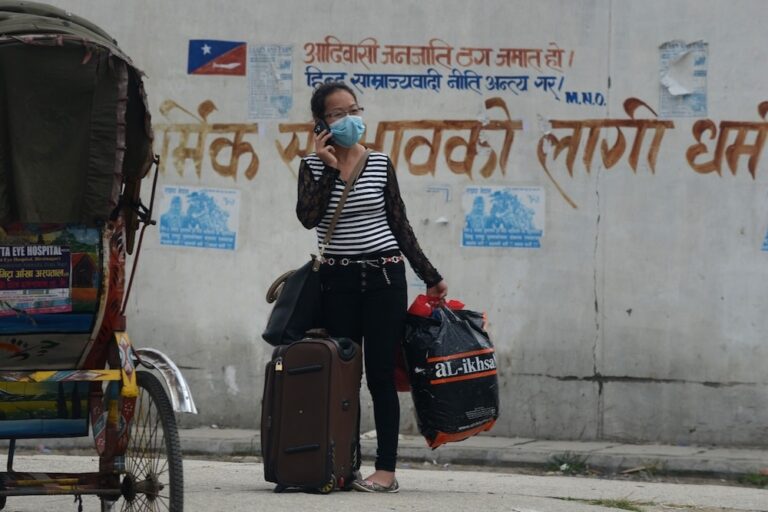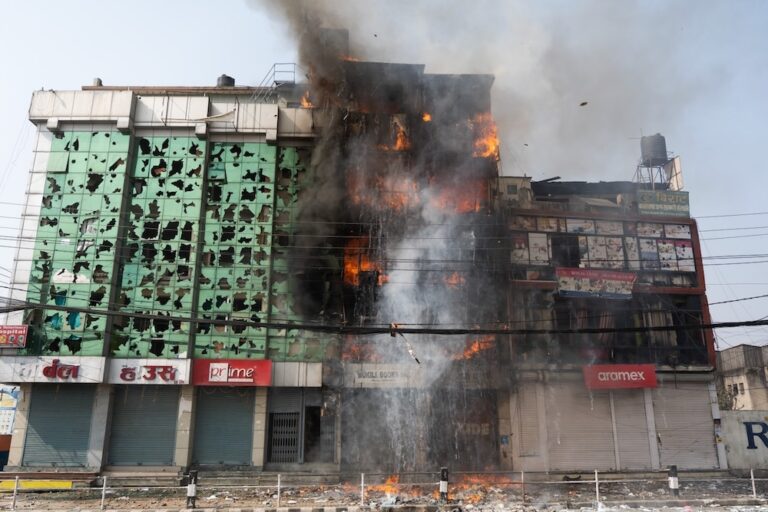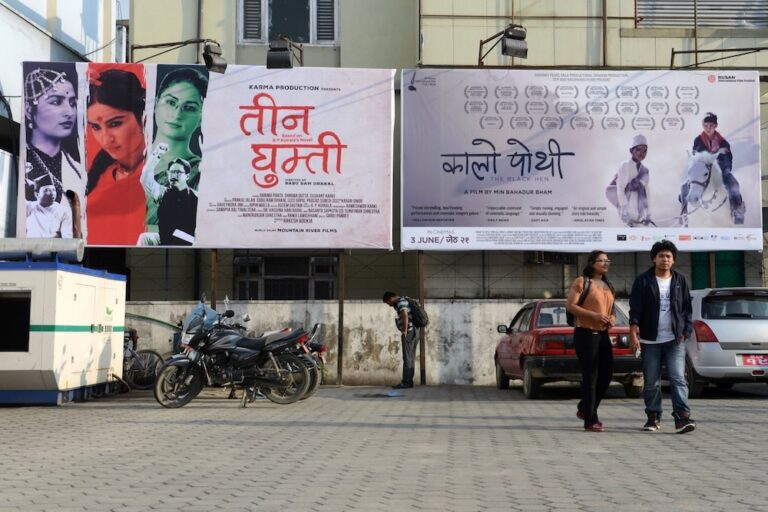(CEHURDES/IFEX) – The Center for Human Rights and Democratic Studies (CEHURDES) – a Kathmandu-based freedom of expression monitoring group – is concerned about the on-going arrests of journalists, human rights activists and professionals by the royal regime in Nepal, while carrying out their professional duties or expressing their views peacefully over the past few weeks. […]
(CEHURDES/IFEX) – The Center for Human Rights and Democratic Studies (CEHURDES) – a Kathmandu-based freedom of expression monitoring group – is concerned about the on-going arrests of journalists, human rights activists and professionals by the royal regime in Nepal, while carrying out their professional duties or expressing their views peacefully over the past few weeks.
On 3 February 2006, police in Kathmandu detained three dozen professionals including journalists, university teachers, school teachers and writers. Those detained included president of the Federation of Nepalese Journalist (FNJ) Bishnu Nisthuri, former chairman of Press Council Nepal Harihar Birahi, vice president of FNJ Sanjaya Santoshi Rai and Jhapa district president of FNJ, Krishna Humagain. They were detained overnight without arrest warrants and were not released until the following morning.
The thirty-two professionals detained by the authorities, while trying to participate in a peaceful rally outside the so-called “restricted zone” in Kathmandu on 3 February, have been handed 90-day detention orders.
On 4 February, police in the eastern district of Sunsari arrested four journalists who were covering a pro-democracy poetry recitation function being organised at the district headquarters in Itahari. The journalists detained include chief editor of “Blast Times” daily, Raj Kumar Karki, editor of weekly “Pratinidhi”, Krishna Binod Lamsal, editor of “Morning Times”, Rajesh Bidrohi, and Bhim Rai ‘Jwala’ of the weekly “Aujar”. They were taken into custody from Itahari at approximately 5:00 p. m. (local time) and were taken to the nearby barracks of the Armed Police Force at Pakali the same evening, where they remained until the evening of 5 February.
On the morning of Sunday 5 February, security personnel manhandled and threatened Rabi Dhami, district correspondent of “Annapurna Post” daily in Kanchanpur while he was taking photographs at a local bus park. Sunday marks the first day of a week-long nationwide strike called by the CPN (Maoist) rebels and coincides with the municipal polls slated for 8 February.
Latest reports say police also took ten journalists from the eastern town of Rajbiraj, including Prakash Khatiwada, into custody on 5 February. (CEHURDES is trying to gather more information regarding the cause of their arrest and the latest situation.)
CEHURDES condemns all these incidences of arbitrary arrest and manhandling of journalists in various parts of the country. We see them as further examples of the state’s growing intolerance towards human rights defenders, including journalists.
We demand the immediate release of all the journalists currently in police custody and call upon the royal government to instruct district level authorities not to target media personnel while they are carrying out their professional duties or taking part in peaceful assemblies.
CEHURDES is worried that there may be more incidences of manhandling or detention of media personnel by the security personnel during the week-long nationwide strike (5-11 February). We call upon the international community, including the UN Office of High Commissioner for Human Rights (OHCHR) in Nepal, to monitor the situation and ensure that journalists are allowed to undertake their activities in an environment without fear and intimidation.
In a letter sent to Home Minister of Nepal Kamal Thapa on 3 February, chief of OHCHR in Nepal Ian Martin said over 800 people were detained over the past weeks in connection with peaceful protests and that “the great majority of these persons appear to have been arrested for exercising their right to freedom of peaceful assembly or expressing their political opinion. I urge that your Ministry undertake an urgent review of all PSA detention cases with a view to ensuring the immediate and unconditional release of those against whom there is no evidence of involvement in violence,” he said.
Similarly, on 5 February, the National Human Rights Commission (NHRC) of Nepal criticised the royal government for failing to provide minimum basic facilities to the political detainees and asked it to free all those “who have been detained without any appropriate or adequate basis.”


